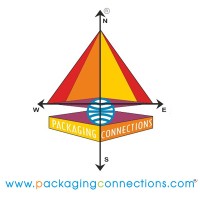
Advancements in mono-material flexible p...
Flexible film packaging structures primarily based on polyethylene (PE), polypropylene (PP), or polyethylene terephth

Flexible film packaging structures primarily based on polyethylene (PE), polypropylene (PP), or polyethylene terephth
Various companies, including packaging suppliers, are increasingly utilizing the flexibility of 3D printing to explor
Unilever, one of the world’s largest fast-moving consumer goods (FMCG) companies, consistently pioneers new products
Pulpoloco Sangria stands out in the bustling beverage industry with its innovative CartoCan® packaging, setting a new
Chocolates Valor, a prominent Spanish chocolate manufacturer, has effectively transitioned a portion of its cocoa pro
Dow and LVMH Beauty, a division of LVMH, the world leader in luxury with 75 renowned brands, have joined forces to ex
Dow and The Procter & Gamble Company have unveiled a joint development agreement (JDA) aimed at pioneering a nove
The Flexible Plastics Fund, established in May 2021, brings together five founding partners: Mars, Mondelēz Internati
The British Crisp Co.
As consumer packaged goods (CPGs) in the United States reassess their packaging strategies in response to Extended Pr
Netstal Unveils Groundbreaking Achievement: 128-Cavity Mold Generates 26-mm Water Closures in Record 1.9-Second Cycle
The lining or coating of a package may seem minor, but it plays a crucial role in its sustainability.
Contract manufacturing is trending for several reasons, driven by the evolving dynamics of the global economy, technological advancements, and changing business strategies. Here are some key factors contributing to the increasing popularity of contract manufacturing:
Cost Efficiency: Contract manufacturing allows companies to leverage the cost advantages offered by outsourcing production to specialized manufacturers. These manufacturers often have economies of scale, advanced technologies, and efficient processes in place, leading to lower production costs for the contracting company.
Focus on Core Competencies: Many companies prefer to focus on their core competencies such as research and development, marketing, and sales, rather than investing resources in establishing and managing manufacturing facilities. Contract manufacturing enables companies to delegate production tasks to specialized partners, allowing them to concentrate on their strengths and strategic priorities.
Flexibility and Scalability: Contract manufacturing offers flexibility in production volume and capacity. Companies can adjust production levels based on market demand without significant investments in infrastructure or workforce. This scalability allows businesses to respond quickly to changing market conditions and customer preferences.
Access to Expertise and Technology: Contract manufacturers often possess specialized expertise, advanced technologies, and industry-specific knowledge that may not be available in-house. By partnering with contract manufacturers, companies can tap into this expertise and access cutting-edge technologies without the need for substantial capital investments.
Globalization and Supply Chain Optimization: In an increasingly globalized world, companies are seeking to optimize their supply chains and expand their market reach. Contract manufacturing provides access to a global network of suppliers and production facilities, allowing companies to reduce lead times, minimize shipping costs, and access new markets more efficiently.
Risk Mitigation: Outsourcing production to contract manufacturers can help mitigate various risks associated with manufacturing operations, such as regulatory compliance, quality control, and supply chain disruptions. Contract manufacturers often have robust quality management systems and risk mitigation strategies in place, reducing the burden on the contracting company.
Innovation and Collaboration: Contract manufacturing partnerships can foster innovation and collaboration between companies and manufacturers. By working closely with contract manufacturers, companies can co-develop new products, improve existing processes, and stay ahead of competitors in rapidly evolving markets.
Overall, the trend towards contract manufacturing reflects a strategic shift among companies towards more agile, cost-effective, and collaborative manufacturing models that enable them to stay competitive in an increasingly dynamic business environment.

Utilizing Frugalpac's Frugal Bottles, crafted from 94% recycled paperboard with a food-grade pouch housing the wine,
Packaging Color Manufacturing (PCM Grupo) has recently integrated a cutting-edge machine into its operations, enhanci
Trivium's collaboration with Budweiser, a renowned leader in the beverage industry, underscores both companies' stron
The Singolo 2cc dispensing pump, crafted exclusively from polypropylene material, delivers exceptional dispensing per
Virospack introduces a sleek and contemporary addition to its push button dropper range, designed to elevate beauty b